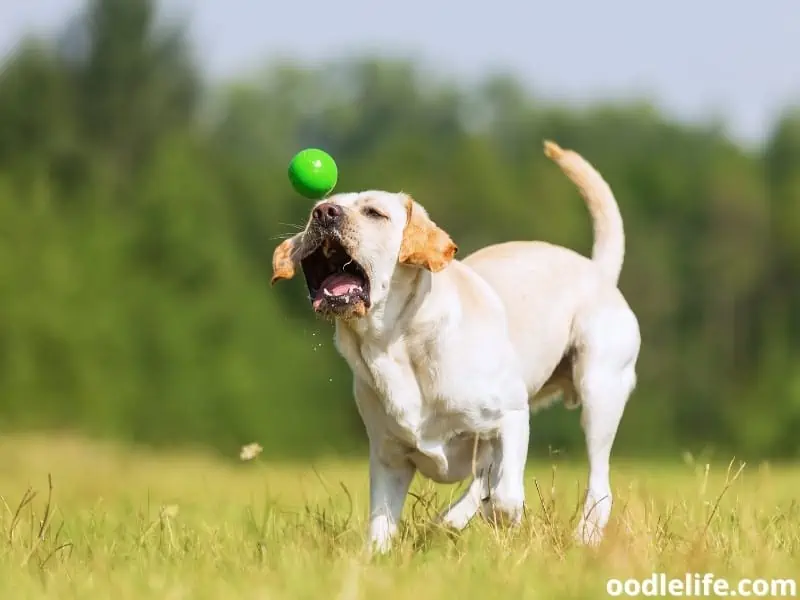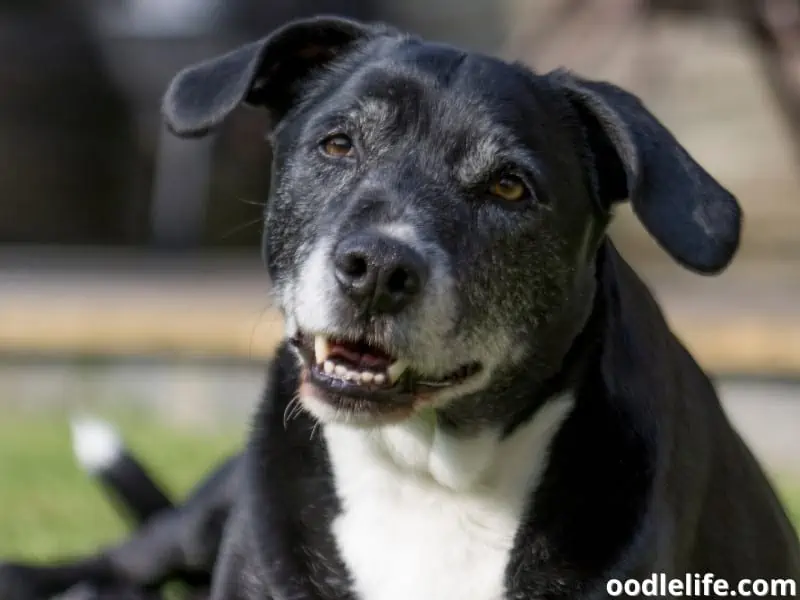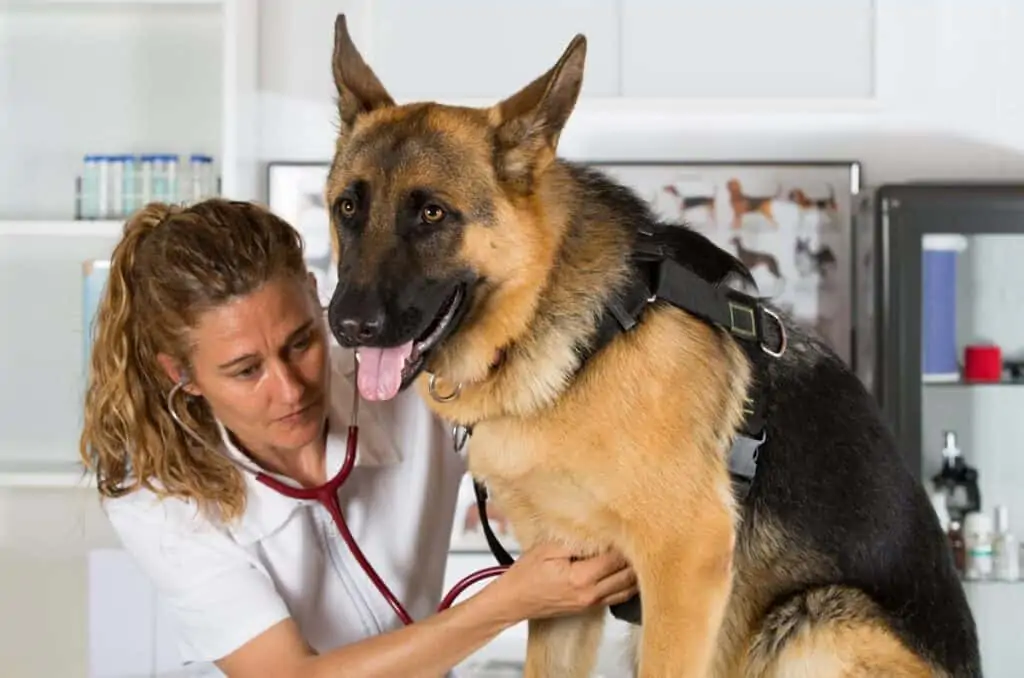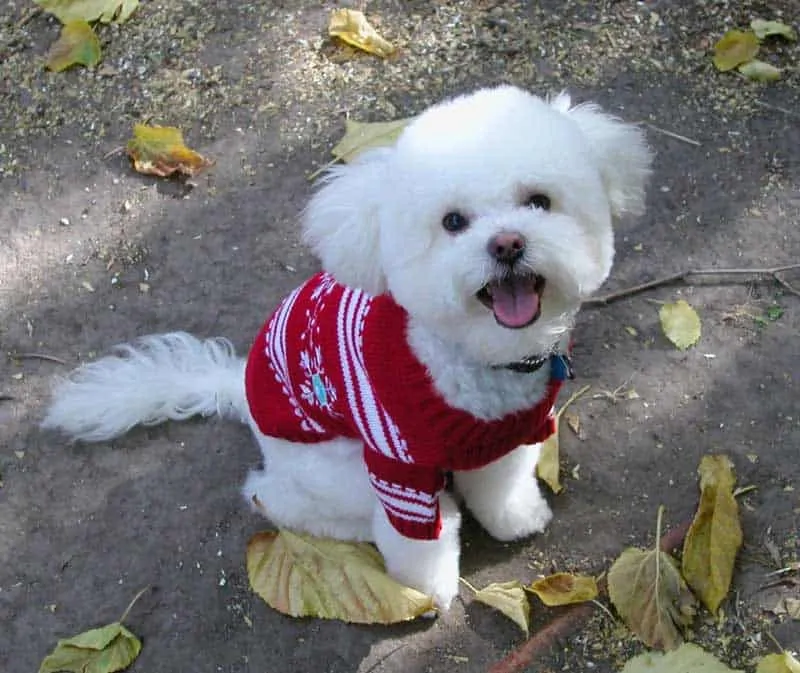11 Causes of Dog Trembling Bottom Jaw
Every dog owner has probably noticed their pup doing something odd now and then. Tail chasing, butt scooting, and head shaking are typical, albeit bizarre, doggie behaviors.
One behavior that tends to raise more concern than others is when your dog has a trembling bottom jaw. While many things often have an immediately evident cause, a dog’s trembling bottom jaw can be a little more worrisome because there usually isn’t any apparent reason.
A dog’s jaw might tremble for several reasons, including:
- Cold: Just like humans, dogs can shiver when they’re cold.
- Fear or Anxiety: Stressful situations can cause trembling.
- Excitement: Some dogs tremble when they’re very excited.
- Pain: Dental issues or other pain can cause jaw trembling.
- Nausea: Upset stomachs can lead to trembling.
- Age-related: Older dogs may tremble due to muscle weakness or neurological decline.
- Poisoning: Exposure to toxins can cause trembling.
- Seizure Disorders: Conditions like epilepsy can manifest as trembling.

One of the quickest conclusions to jump to is a seizure, which can be scary. However, that’s likely not the case.
Fortunately, most of the reasons a dog’s jaw might be trembling are entirely benign. Nevertheless, here are just a few reasons your pup might be exhibiting this odd behavior.
Behavioral and Environmental Reasons
Some of the reasons your dog’s jaw is trembling could be behavioral or environmental. In fact, these are some of the most common causes of this strange behavior.
Cold
Much like chattering teeth, your dog’s trembling bottom jaw could simply signify that they’re chilly. This is the most likely reason you’ll see that tell-tale shiver. If cold air is the problem, you might notice trembling throughout the body, too.
It is especially common with small dogs, dogs with short hair, or young dogs. If they don’t have much to keep them warm in the way of fur or fat for insulation, they’re particularly susceptible to low temps. So try to keep your little one inside on chilly days or put a sweater on when you go on walks.
Excitement
Some dogs do crazy things when they’re excited, such as jumping in circles, growling, and batting at their noses. A trembling bottom jaw is just another thing you can add to the list.
Going for a walk, getting out their favorite toy, or taking a trip in the car are all things that could get your pup riled up for fun. So don’t be surprised if you notice a shaking jaw and maybe some rumbles as your dog prepares to play.

Anxiety
Dogs suffer from anxiety in much the same way humans do. Vocalizing stress is a typical response to stress or anxiety, as is chewing and a trembling jaw. If you notice your dog doing this and aren’t sure of the cause, try to see if something’s stressing them out.
For example, construction next door or a new baby could cause your dog to exhibit signs of stress. The best thing you can do in that situation is to provide a calming environment. However, if the problem persists, consider a canine behavioral specialist and consult your veterinarian.

Displacement Behavior
Displacement behavior is when a dog exhibits one behavior instead of something else. For example, when your dog is experiencing some type of emotion, usually negative, they might do something else to communicate that emotion.
If your dog is in a situation that is making it uncomfortable, they might shake their bottom jaw to communicate that they’re uncomfortable. For example, if your dog gets over-excited, they might pick up a blanket and shake it or shake their jaw.

Anger
If your dog experiences any level of anger or feels threatened, you may see their bottom jaw tremble a bit. It’s one of many behaviors your dog might exhibit if they feel angry. Others include growling, lip-curling, and teeth-baring.
When your dog’s angry, it’s best to remove them from the situation if you can. This approach is the best way to help them calm down and not become agitated any further.

Age
Old age can make a dog’s body do some concerning things. For example, shaking is often an involuntary response to the body’s aging process, and a quivering bottom jaw could be one of those responses.
For example, your dog might’ve reached a point where their jaw gets tired out after eating or a game of fetch. If that’s the case, your dog’s jaw might tremble slightly with fatigue. Of course, it doesn’t necessarily mean there’s an injury, but it’s worth noting, regardless.

Medical Reasons
In addition to behavioral and environmental reasons, there are a few medical reasons your dog might have a trembling jaw. If you’ve ruled out behavioral issues, you could consider some of the medical causes listed here.

Dental Problem
As far as medical reasons for jaw trembling go, a dental issue is the most likely. Cavities, gum disease, injury, or an infection can all cause a lot of pain. In some cases, your dog’s response to that pain could be trembling.
If you think this is the issue, you can try to examine your dog’s mouth. However, if they’re in pain, it’s best to ask your vet to take a proper look.
Poisoning
There are a lot of foods, plants, and household substances that are toxic to dogs. So if you happen to notice trembling after your pup got into the trashcan or took a bite out of your poinsettias, it’s possible poisoning is the issue.
If your dog has ingested poison, you may notice other signs, for example, vomiting, diarrhea, neurological symptoms or even bleeding. If you suspect that your pet has eaten something harmful, take them to your vet straight away.
Medication Side Effect
It’s easy to overlook the possibility of a medical side effect in dogs because we often don’t view doggie meds the same way we do human ones. However, canine medications can have as many side effects as those we take.
If you notice your dog’s jaw trembling after starting them on a new medication, check the package insert to see the side effects. If you don’t have it or aren’t sure, contact your veterinarian.
Veterinarian Dr Charlotte Stiles (DVM)
Seizure
A seizure might be the first thing you consider if you think there’s a medical reason your dog’s jaw is trembling. However, seizures are pretty common in dogs, and you’ll have to visit your vet to assess whether it’s anything to be concerned about.
After a seizure, your dog’s body might still tremble now and then. That doesn’t mean your dog’s about to experience an attack again. It’s simply the body’s way of recovering afterward.
However, you shouldn’t jump right to that conclusion unless your dog has had seizures before. If you think your dog is having a seizure, contact your vet immediately.
Shaker Syndrome
When a dog’s cerebellum becomes inflamed, it can cause what’s known as Shaker syndrome. Since the cerebellum is the part of the brain responsible for muscle movements, it can cause tremors all over the body, including the jaw.
Often, the jaw is the last part to stop shaking when a dog has a shaking episode. So, similar to a seizure, if your pup had an attack and you see their jaw trembling, it’s likely the end of it.
Conclusion
Seeing unusual behavior like your dog’s trembling bottom jaw can be unnerving when it’s your dog. Unfortunately, your dog can’t tell you what’s wrong, so it’s easy to assume the worst. Try not to worry too much, though.
More often than not, there’s nothing to worry about. And, of course, if you’re not sure, you can simply give your vet a call for a bit of reassurance.
